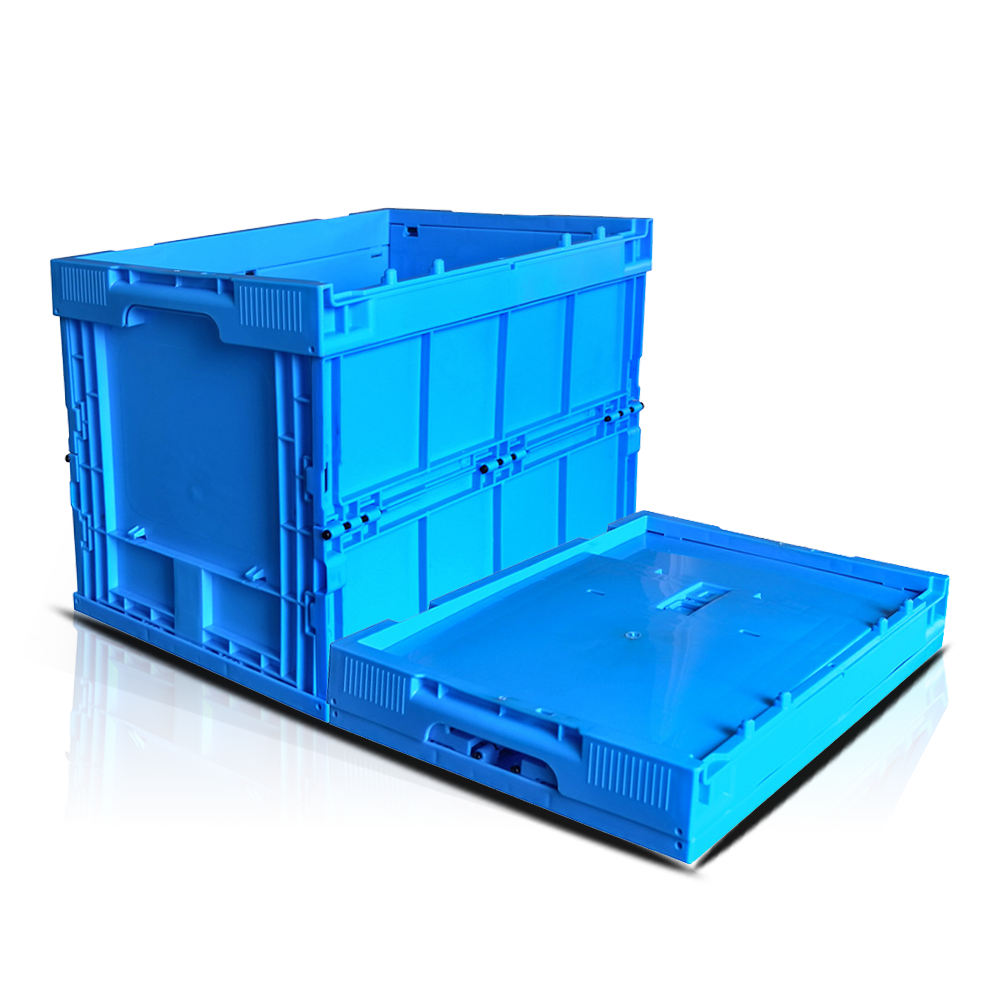Comparing plastic folding crates with those made from metal or wood involves evaluating several factors, including durability, weight, cost, environmental impact, maintenance, and specific use cases. Here’s a detailed comparison:
Advantages:
Lightweight: Plastic crates are generally lighter than metal or wood, making them easier to handle and transport.
Durability: Resistant to corrosion, rust, and rot, making them suitable for use in wet or humid environments.
Versatility: Available in various designs, including folding models that save space when not in use.
Ease of Cleaning: Smooth surfaces make plastic crates easier to clean and sanitize, which is beneficial in industries like food and pharmaceuticals.
Cost: Often more affordable than metal crates and sometimes wood crates, especially when considering the long-term durability and lack of maintenance.
Safety: Rounded edges and lack of splinters or sharp edges reduce the risk of injury during handling.
Disadvantages:
Strength: Generally less strong than metal crates and can be less durable under heavy loads or rough handling.
Environmental Impact: While many are recyclable, plastic crates can be less eco-friendly than wood, especially if not recycled properly.
Heat Sensitivity: Can deform or degrade under extreme temperatures.
Metal Crates
Advantages:
Strength: Extremely strong and durable, capable of handling heavy loads and rough treatment.
Longevity: Resistant to impact, wear, and tear, often outlasting plastic and wood crates.
Security: Often more secure, can be designed with locking mechanisms to protect valuable items.
Recyclability: Metal is highly recyclable and has a lower environmental impact when recycled.
Disadvantages:
Weight: Heavier than plastic and wood crates, which can make them more difficult to handle and increase transportation costs.
Corrosion: Susceptible to rust and corrosion if not properly treated, especially in wet environments.
Cost: Generally more expensive upfront compared to plastic and sometimes wood crates.
Noise: Can be noisier during handling and transport.

Wood Crates
Advantages:
Strength: Strong and sturdy, suitable for heavy loads and offering good protection for contents.
Natural Material: Made from a renewable resource, biodegradable, and can be more environmentally friendly if sourced sustainably.
Insulation: Provides better thermal insulation compared to metal or plastic, beneficial for certain types of goods.
Customizability: Easier to customize in terms of size and design for specific applications.
Disadvantages:
Weight: Heavier than plastic, making them more cumbersome to handle and transport.
Maintenance: Prone to splintering, rot, and insect damage, requiring more maintenance.
Cleaning: More difficult to clean and sanitize, which can be a drawback in industries with strict hygiene standards.
Cost: Can be more expensive than plastic, particularly for high-quality, durable wood crates.
Summary
Plastic Crates are lightweight, versatile, and easy to clean, making them ideal for a wide range of applications, especially where hygiene and ease of handling are important. They may lack the strength and environmental benefits of wood and metal.
Metal Crates offer superior strength, durability, and security, suitable for heavy-duty applications and long-term use. They are heavier, more expensive, and can corrode without proper care.
Wood Crates provide natural strength and insulation, with potential environmental benefits if sourced sustainably. They are heavier, require more maintenance, and are harder to clean.
Choosing the right type of crate depends on the specific requirements of your application, including load capacity, environmental conditions, handling needs, and budget.












ZHEJIANG ZHENGJI PLASTIC INDUSTRY CO. ,LTD born in 1990’s is a professional manufacturer of plastic collapsible boxes, folding crates, storage bins, moving dolly and other plastic products items, etc.
 +0086-573-80886008
+0086-573-80886008Copyright © Zhejiang Zhengji Plastic Industry Co.,Ltd.All Rights Reserved.
